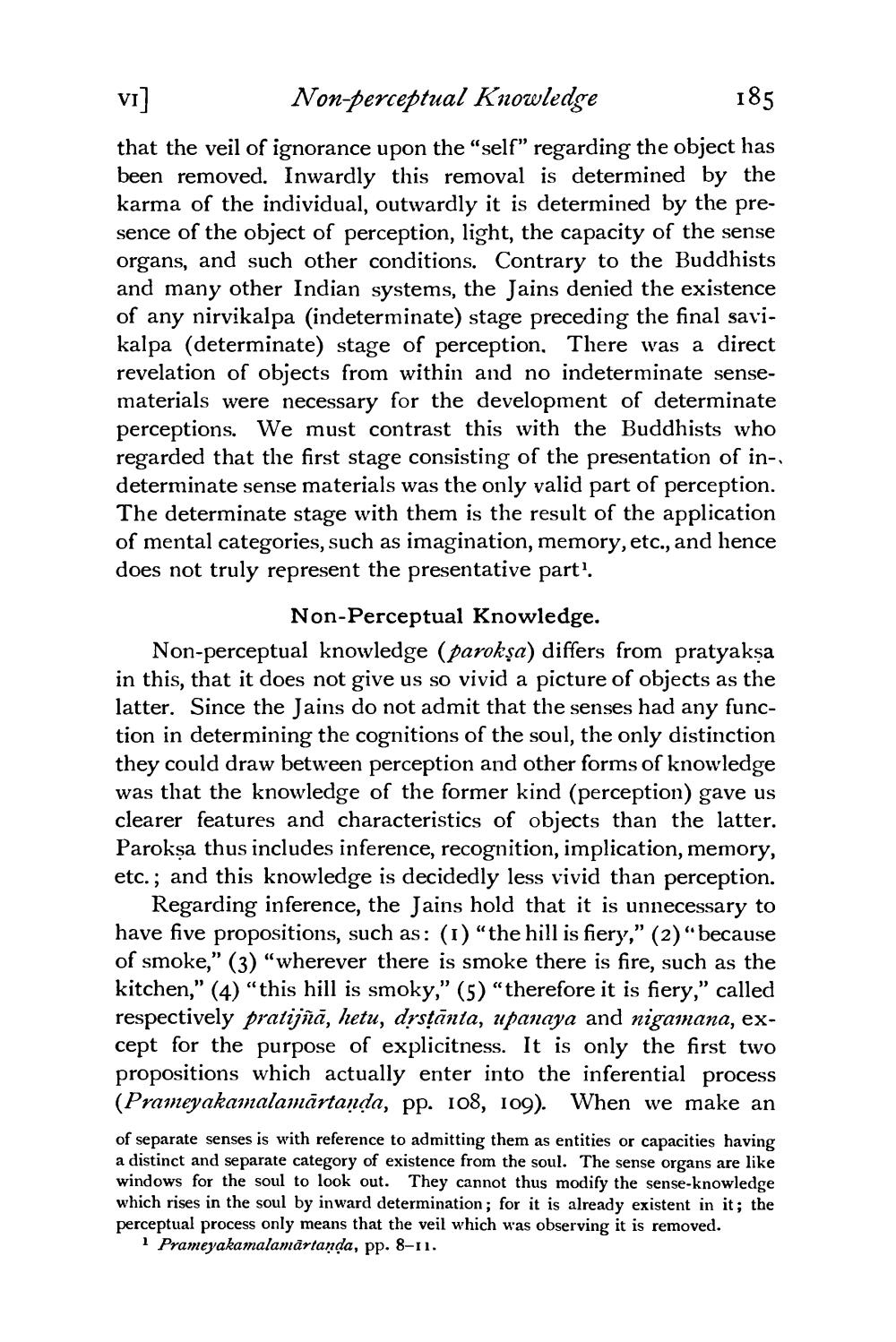________________
vi] Non-perceptual Knowledge
185 that the veil of ignorance upon the "self” regarding the object has been removed. Inwardly this removal is determined by the karma of the individual, outwardly it is determined by the presence of the object of perception, light, the capacity of the sense organs, and such other conditions. Contrary to the Buddhists and many other Indian systems, the Jains denied the existence of any nirvikalpa (indeterminate) stage preceding the final savikalpa (determinate) stage of perception. There was a direct revelation of objects from within and no indeterminate sensematerials were necessary for the development of determinate perceptions. We must contrast this with the Buddhists who regarded that the first stage consisting of the presentation of indeterminate sense materials was the only valid part of perception. The determinate stage with them is the result of the application of mental categories, such as imagination, memory, etc., and hence does not truly represent the presentative part'.
Non-Perceptual Knowledge. Non-perceptual knowledge (parokşa) differs from pratyaksa in this, that it does not give us so vivid a picture of objects as the latter. Since the Jains do not admit that the senses had any function in determining the cognitions of the soul, the only distinction they could draw between perception and other forms of knowledge was that the knowledge of the former kind (perception) gave us clearer features and characteristics of objects than the latter. Paroksa thus includes inference, recognition, implication, memory, etc.; and this knowledge is decidedly less vivid than perception.
Regarding inference, the Jains hold that it is unnecessary to have five propositions, such as: (1)“the hill is fiery,” (2) “because of smoke," (3) "wherever there is smoke there is fire, such as the kitchen," (4) “this hill is smoky," (5) "therefore it is fiery," called respectively pratijñā, hetu, drsțānta, upanaya and nigamana, except for the purpose of explicitness. It is only the first two propositions which actually enter into the inferential process (Prameyakamalamārtanda, pp. 108, 109). When we make an
of separate senses is with reference to admitting them as entities or capacities having a distinct and separate category of existence from the soul. The sense organs are like windows for the soul to look out. They cannot thus modify the sense-knowledge which rises in the soul by inward determination; for it is already existent in it; the perceptual process only means that the veil which was observing it is removed.
1 Prameyakamalamārtanda, pp. 8-11.




